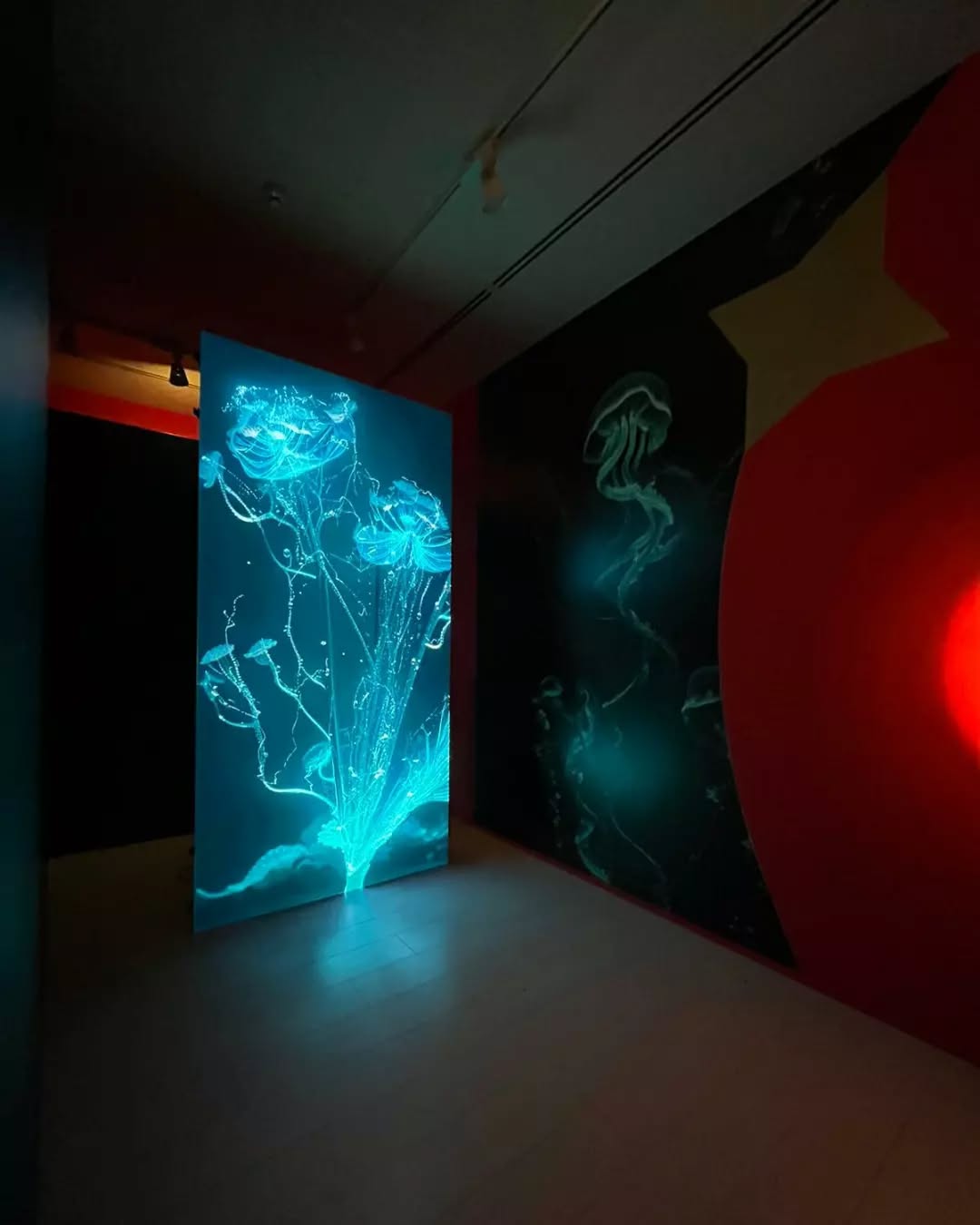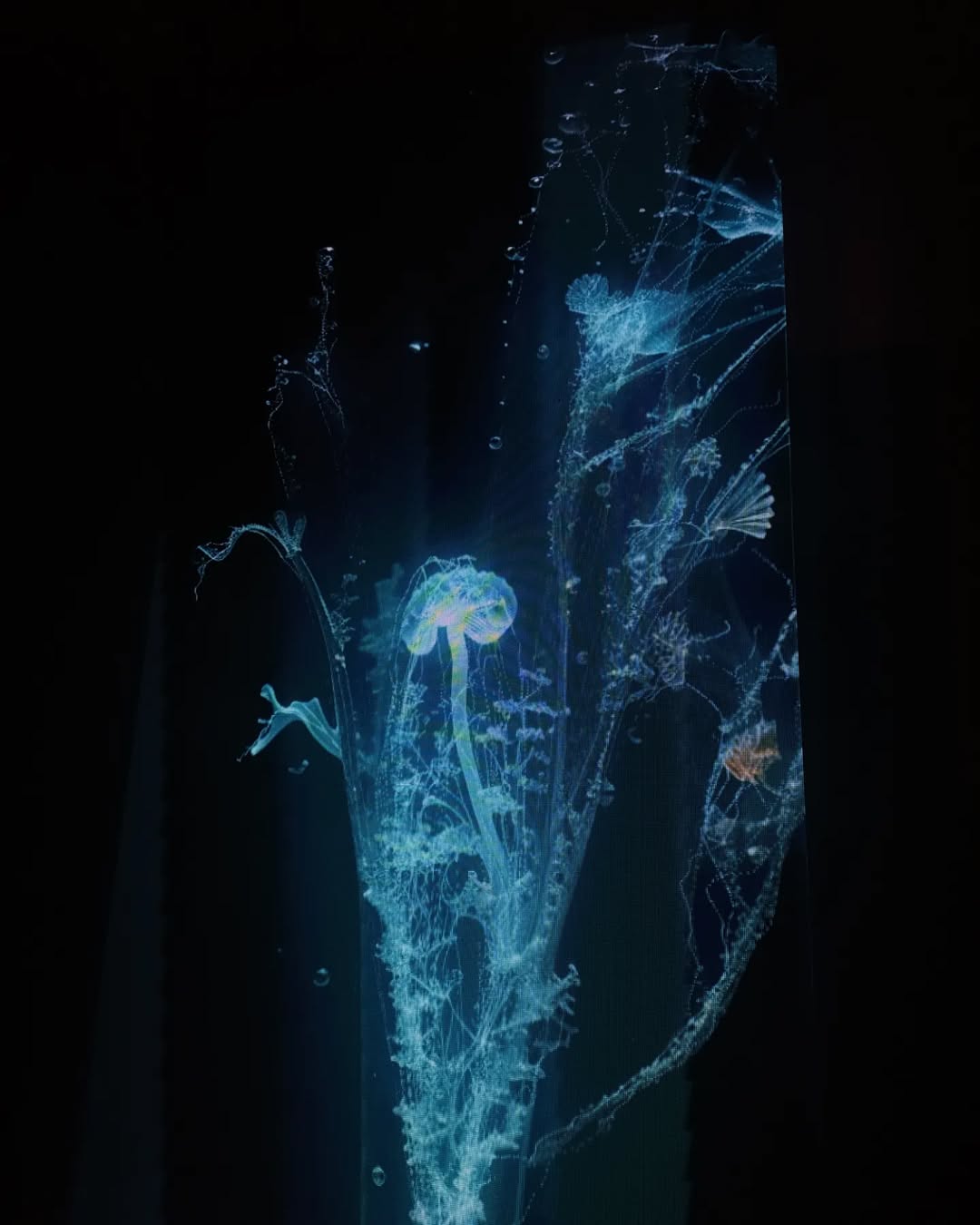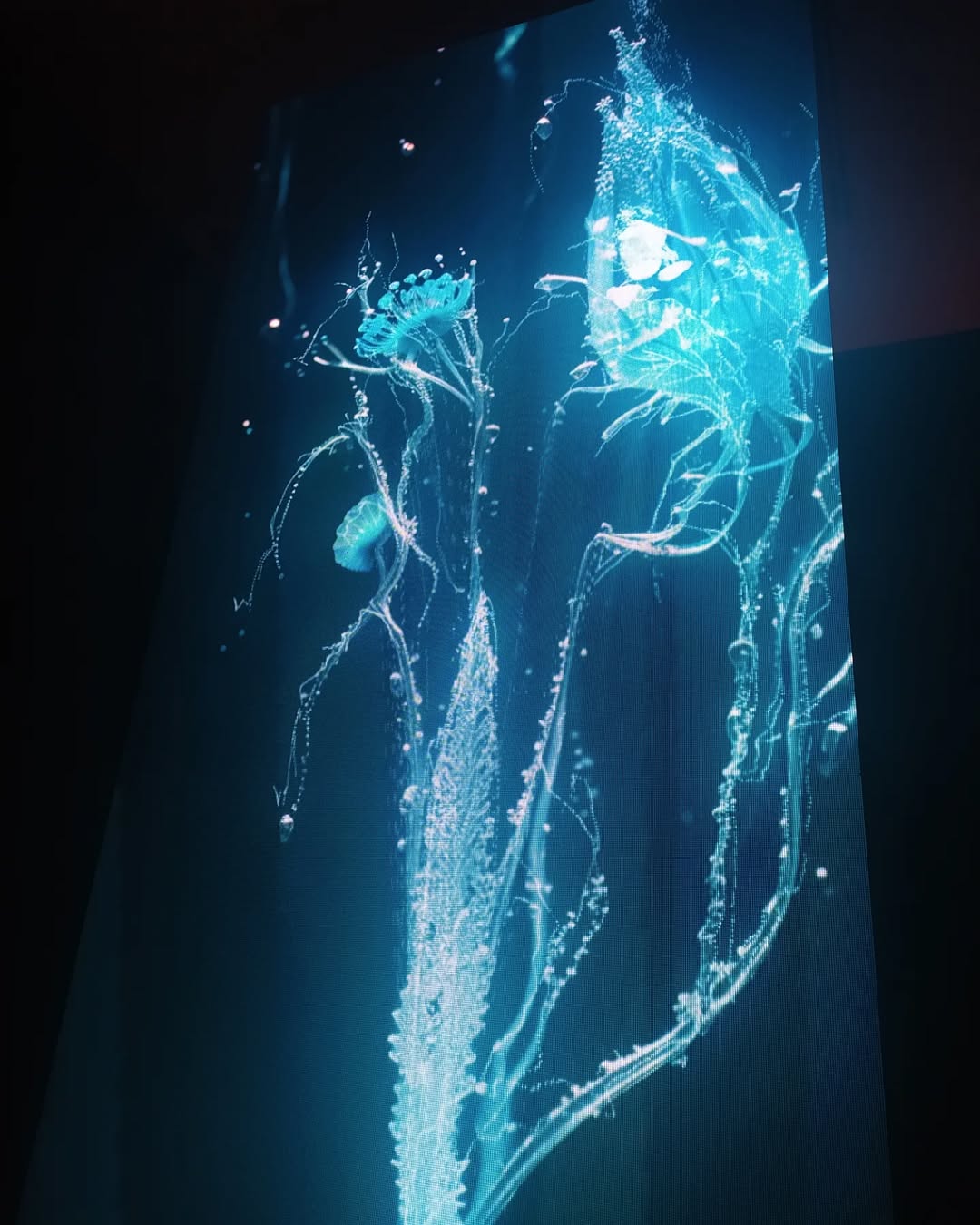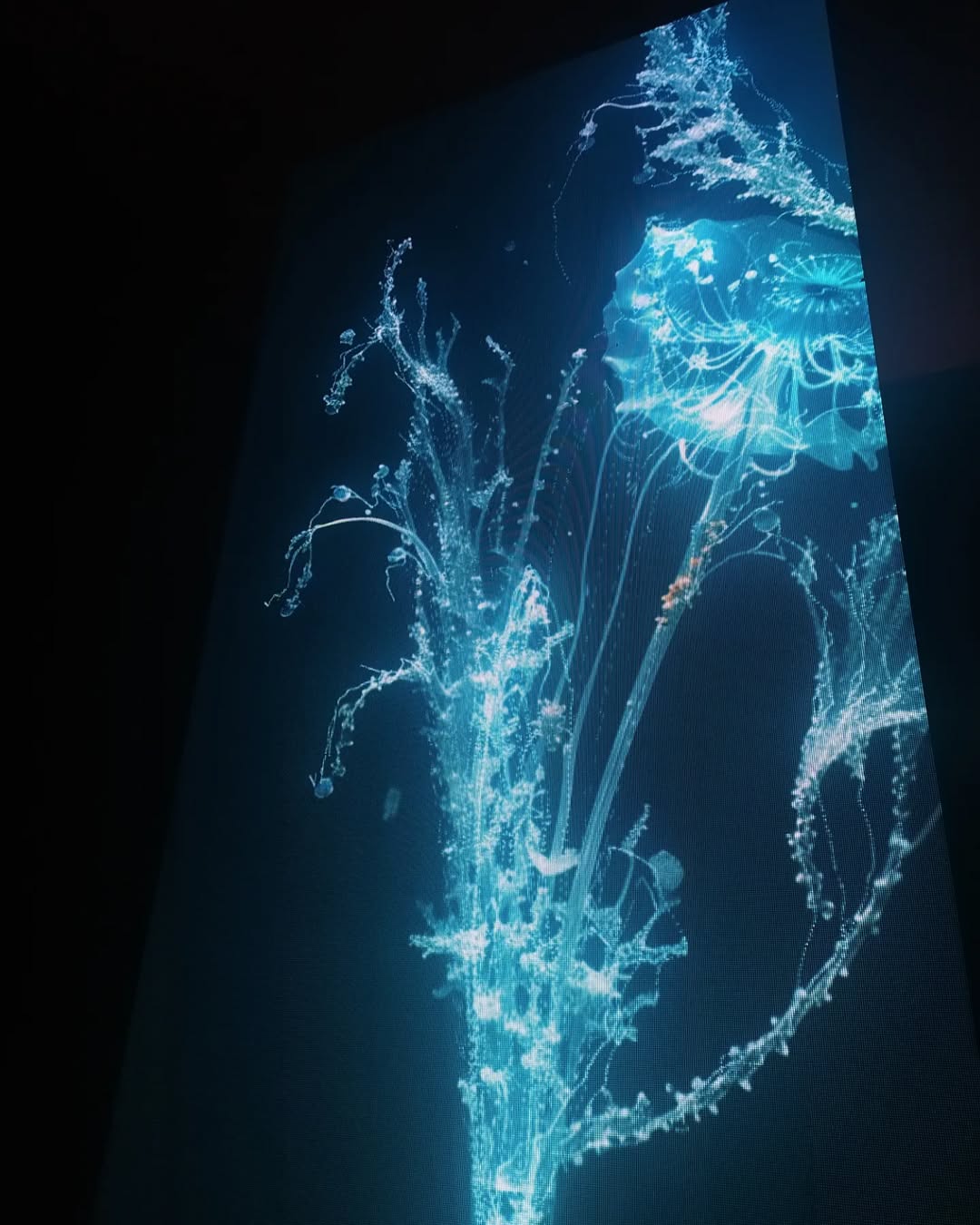Cybernetic Flora
2023
Realtime Generative AI Installation
EXHIBITIONS
2023 Cybernetic Flora: Video Extract 1, Samsung D’Art
2023 Cybernetic Flora, Eskizden Piksele, Antalya Kültür Sanat
Realtime Generative AI Installation
EXHIBITIONS
2023 Cybernetic Flora: Video Extract 1, Samsung D’Art
2023 Cybernetic Flora, Eskizden Piksele, Antalya Kültür Sanat
“Noise gives rise to a new system, an order that is more complex than the simple chain. This parasite interrupts at first glance, consolidates when you look again." M. Serres
The independent research detailing the
technique “DENOISING PATH ORIENTATION”
utilized in the development of “Cybernetic
Flora” is set for publication at the ISEA 2024
conference
The artwork Cybernetic Flora exemplifies the intricate merging of elements drawn from diverse botanical sources, creating a symbiosis of forms that seem to transcend their origins. Inspired by the complex interrelationships found in natural ecosystems, the piece combines features reminiscent of marine and terrestrial life, such as jellyfish, coral, amber, and dandelion, into a cohesive and harmonious entity.
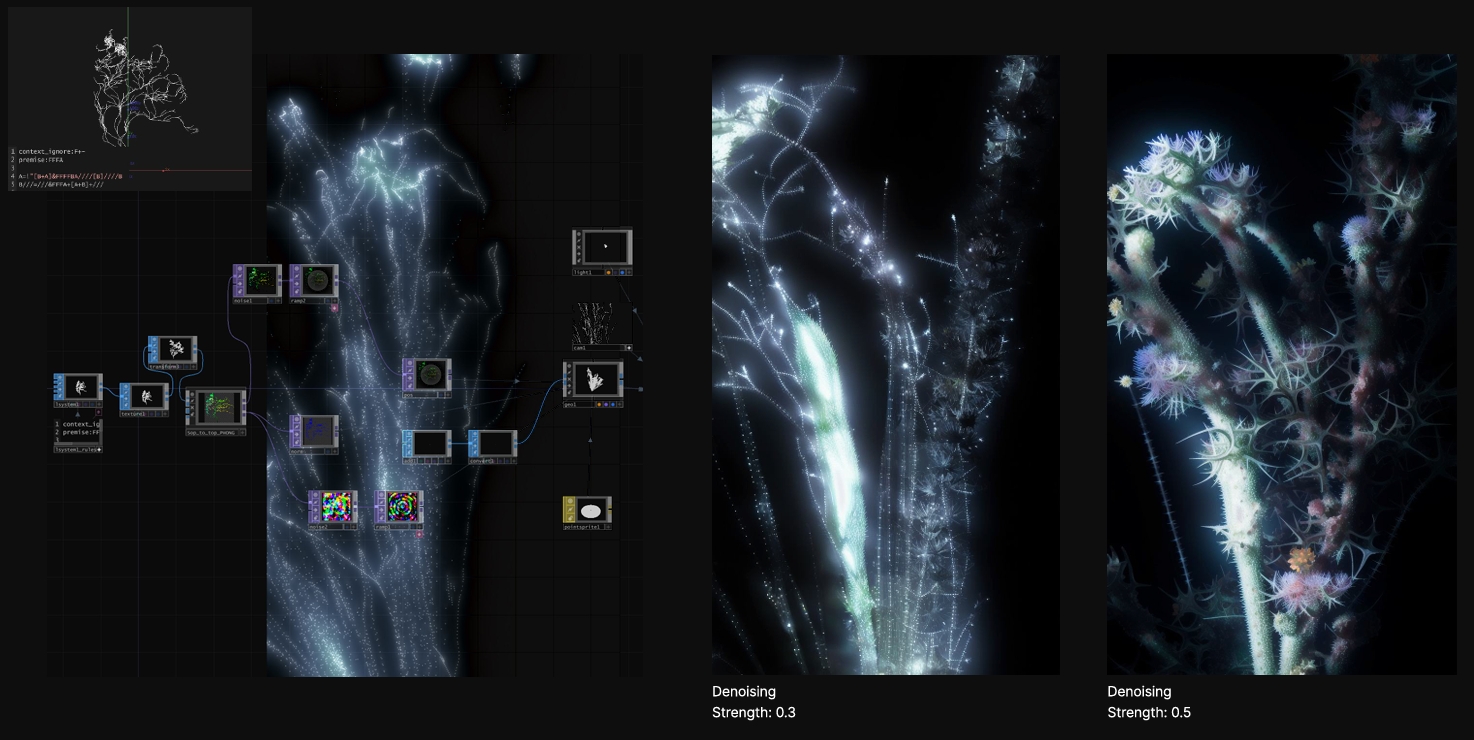
Methodology
Lindenmayer's foundational work highlighted the system's utility in theoretical biology, where it serves to model inputs received by cells from both directions along a filament, dictating changes in state and output based on the present state and two inputs it receives, which is crucial for branching filaments as well. By encoding biological processes into a formalized mathematical framework, researchers have been able to simulate and analyze a wide array of growth phenomena, from the branching patterns of trees to the spiral arrangements of leaves. This inherent capacity for abstraction and representation of biological structures has extended the utility of the L-system beyond its origins in theoretical biology, finding applications in various fields including computer graphics, generative art, and procedural content generation.
Lindenmayer's foundational work highlighted the system's utility in theoretical biology, where it serves to model inputs received by cells from both directions along a filament, dictating changes in state and output based on the present state and two inputs it receives, which is crucial for branching filaments as well. By encoding biological processes into a formalized mathematical framework, researchers have been able to simulate and analyze a wide array of growth phenomena, from the branching patterns of trees to the spiral arrangements of leaves. This inherent capacity for abstraction and representation of biological structures has extended the utility of the L-system beyond its origins in theoretical biology, finding applications in various fields including computer graphics, generative art, and procedural content generation.
Stable Diffusion, as apivotal model in visual arts, introduces an
innovative approach to image denoising and enhancement. By using diffusion
models and applying them in the latent space of powerful pretrained
autoencoders, Stable Diffusion excels in removing noise while retaining
essential structural details. This process not only
refines images through an iterative scheme to improve visual fidelity but also
incorporates cross-attention layers, enhancing the model's flexibility for various
tasks like text-to-image synthesis, unconditional image generation, and
super-resolution. In the realm of creative media, fusing L-system with Stable
Diffusion—the technique referred to as "Denoising Path
Orientation"—utilizes the model's denoising strengths to precisely refine
L-system-generated patterns. This fusion not only improves visual quality but
also adopts the L-system to use in convolution processes within AI models,
thereby broadening its interdisciplinary applications.
